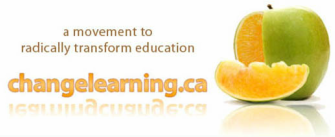Read more
|
The Hadley Learning Community opened on the 1st September 2006 and is located in the community of Hadley in central Telford.HLC is a £70 million PFI project, in partnership with Interserve that represents a major investment by the Brorough of Telford & Wrekin Council in creating a 21st Century learning campus.
Read more
0 Comments
The goal of the Alberta Initiative for School Improvement (AISI) is to improve student learning and performance by supporting initiatives that address unique needs and circumstances within school authorities. AISI funding is targeted, which means it is provided to school authorities for specific local initiatives that are focused on improving student learning.
Read more This Policy Proposal, from the 21st Century Learning Initiative in the UK, is written to assist those in positions of influence to initiate powerful changes to current educational arrangements. The circumstantial evidence for such a transformation of learning is drawn from the best in research and practice from around the world. The paper shows that better informed, and more effective, models of learning could be organised through a redistribution of expenditures and responsibilities, at a total cost no greater than current levels of expenditure.
If young people are to be equipped effectively to meet the challenges of the 21st century it is surely prudent to seek out the very best understandings from current scientific research into the nature of how humans learn before considering further reform of the current system.
This article by John Abbott and Terence Ryan appeared in the Spring, 1999 issue of Education Canada. Over 40 billion dollars a year is spent in Canada getting our children from Kindergarten to Grade 12,[i], yet over 40% of our youth fail to meet expected performance levels for basic subjects[ii] and almost one quarter of our children fail to graduate with their peers.[iii]. Students are disengaging grade by grade[iv], a trend illustrated by their increasing dislike for school[v], declining academic achievement[vi] and rising rates of teenage depression[vii] and suicide[viii]. Contrary to Canada’s most fundamental democratic tenets, minority and low-income children are the hardest hit[ix]. Public opinion polls show confidence in the education system is at an all-time low[x], home schooling is growing exponentially and the number of children attending private schools has doubled in the past 25 years[xi]. An ever increasing number of factors point to a deeply flawed system that is failing our youth and our society. We see this failure reflected daily on our streets, in our malls and in the news. Learn more about signs of trouble.
Read more If we want our youth to turn into adults that are fulfilled, literate and connected to their families, culture, and global communities—what do we need to do? If we want life-long learners, ingenious thinkers and creative problem solvers, how do we nurture those qualities? If we want kids that are passionately engaged in life and society, where do we start? And if we want a society that spends less on jails, social services, crime prevention and health care, what needs to change?
Our vision is to synthesize research and promising practices related to how humans learn and develop, in order to entirely rethink the model of education in this country. Read more How Did We Get Here?
Our schools are falling short—not because of poor teaching, apathetic youth or lack of rigorous standards but because the educational system of today was built for the needs of a bygone era, using the knowledge available at the time it was created. Significant changes in family, work, technology and culture have radically shifted the context for education in this country, yet the system remains essentially the same. Developments in neuroscience, brain imaging and anthropology now provide concrete answers about how the human brain actually learns and matures, but this relatively recent knowledge is not reflected within the existing educational structure or classroom practices. Decades of “educational reform” calling for higher standards and a return to the basics have served only to drag an already out of date system even further in the wrong direction. These types of simplistic and short term bandages directly contradict what we really know about the circumstances and opportunities that children need to learn, flourish and succeed. As a result, many students are frustrated and disengaged, parents are confused and disappointed, and educators are defensive and worn out. Learn more about the history of education. Read more This Policy Proposal, from the 21st Century Learning Initiative in the UK, is written to assist those in positions of influence to initiate powerful changes to current educational arrangements. The circumstantial evidence for such a transformation of learning is drawn from the best in research and practice from around the world. The paper shows that better informed, and more effective, models of learning could be organised through a redistribution of expenditures and responsibilities, at a total cost no greater than current levels of expenditure.
|
Categories
All
Archives
August 2015
|

 RSS Feed
RSS Feed
